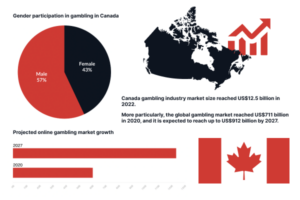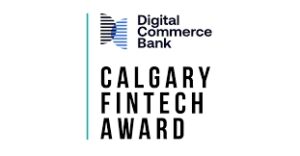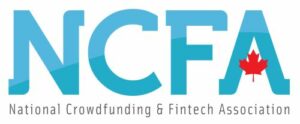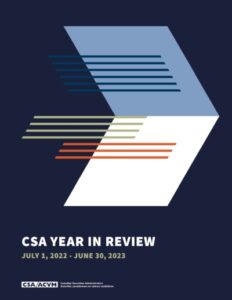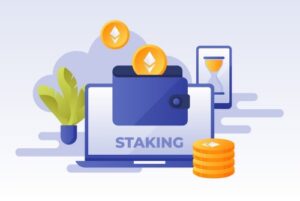Subscribe and tune in each Friday to check out the latest movers and shakers in fintech. Listen to more podcasts here:
Season 1 | Season 2 | Season 3 | Season 4
Fintech Friday Transcript of Episode 59:
MARIA KONIKOV, Director of Operations at the York Entrepreneurship Development Institute (YEDI)
Intro: Welcome to fintech Friday's a weekly podcast brought to you by the National Crowdfunding and Fintech Association of Canada and partners. Covering all things fintech, blockchain, AI and alternative finance.
[00:00:00] Manseeb Khan
I'm excited about today's episode. Today, we're going to learn everything about entrepreneurship. We're going to learn about why education is very important with entrepreneurship. With Maria. Maria, thank you. Thanks so much for jumping on with me today.
[00:00:12] Maria Konikov
Thanks so much for having me. Excited to be here.
[00:00:14] Manseeb Khan
Of course. Yeah. No, thank you again. Maria, you work with the Amazing Yeti Institute. Could you tell the audience a little bit more of the amazing work that you guys are doing at Yeti?
[00:00:25] Maria Konikov
Yeah, absolutely. So Yeti is the York Entrepreneurship Development Institute. It's separate from York University. We're located in the York region. That's where the name comes from originally. What we are is we are a Canadian charity. We're a Canadian business accelerator. We're an academic institute and we're also a private career college. And what our mission is, is to support Canadian entrepreneurs in taking their ideas or early stage businesses and bringing them to market, helping them launch, grow and expand. And the way that we do that is through our programs. So we have set program tracks. We have a community of mentors and support opportunities as well as space for entrepreneurs. We have two physical locations here in the GTA as well as we have some locations around the world. So we have a whole ecosystem to help an entrepreneur or someone who is thinking of entrepreneurship start their journey, grow, expand, get funding, get support and go into the market and be successful.
[00:01:25] Manseeb Khan
That's amazing. Yeah. No, I'm glad and I'm glad that you guys are doing some great work out there. When it comes to entrepreneurship, they really don't think about education. They usually dive first into Google and try to see, okay, how fast can I quickly get my product to market? Education is typically not something that anyone I know. I know as entrepreneur myself, I typically don't try to keep it top of mind, aside from the things I want to learn myself. You guys do have a degree and a diploma program. Could you talk a little bit more in detail about the two programs to give people a little bit more of idea of what people are working with?
[00:01:58] Maria Konikov
Yeah, absolutely. You really hit the nail on the head. Entrepreneurs, they don't want to learn about somebody else's business. They care about what's relevant to them, to their business. How can they grow, how can they be better? So we started back in 2013. We had our incubator program, which is we still have it today. It's a 16 week program, it's a certificate program. And what happens is that they go through all the points, the parts of their business plan, from their vision to their mission to their budget and marketing, etc., and it helps someone who is in the initial stages of their business, really put everything, put some structure down to it, and also introduce them to community, to mentors, funding opportunities, etc.. So we were running that program for almost ten years now and what we the feedback we were getting is that entrepreneurs need more, so they need a more in-depth program, almost like an MBA. However, the current MBA offerings on the market are too expensive, too time consuming, and really too irrelevant most of the time to entrepreneurs. So there's lots of relevant information, but it's also mixed in with many, for example, case studies of other businesses, things like that. So what we did is we developed a diploma program in entrepreneurship and small business management. And what sets this diploma program apart from all the other ones available is, first of all, it's accessible to entrepreneurs, which means it's tuition free. It's tuition free to Canadian entrepreneurs. Given that they maintain an 80% average in the program, then their tuition is waived.
[00:03:31] Maria Konikov
The second thing is that it's the way that it's developed and structured. It's only for the entrepreneur. So they come with their business idea, or if they don't have a business idea, we match them with one of our alumni companies. And everything they do throughout this one year program is for their business. So whatever they learn in class this week, they can go right back into their business and apply it. And it's something that is evolving and helps their business grow as they're going through this program so that they're not wasting time in obtaining this degree and then maybe using it down the road. No, everything, all the assignments, all the lectures, everything is evolving around their business and they have to apply it in real time to their business and report on the results. So it's really practical, really hands on. And at the same time it's taught by really high level instructors who are professors themselves and business owners. So it was really important that this program is run not just by academics that can teach theory, but really by those that have done both. So they have the academic rigor, but they also have the practical experience, and they're all entrepreneurs, successful entrepreneurs themselves. So this is a high level overview of this program, but we're really excited to bring it to Canadians. It's in it's finishing the first year now and we're looking forward to helping many more Canadian entrepreneurs.
[00:04:55] Manseeb Khan
Yeah, no, that's incredible. The part that stood out with me that resonated. Me. It was up to that information. Right. But like you mentioned, a lot of the entrepreneurship programs out there in the post-secondary world are quite dated. I remember when I was in college and part of my digital marketing course, I was still learning about email, not the partners of email marketing campaigns or funnels or everything. It was just having an email and I was like, okay, I'm an Instagram DMS actually do it business actually making sales. And here I am in class learning about just how to set up an email. So it's I think that's going to really resonate with a lot of people knowing that you guys have created and established a program where it's up to date information and it's by professors that are not only in the academic field, which is great, but actually have done businesses themselves so they actually know exactly what they're talking about.
[00:05:43] Maria Konikov
Absolutely. Absolutely.
[00:05:45] Manseeb Khan
Yeah, that's incredible. So why is education so crucial for entrepreneurs? You know, like the main theme we're trying to hammer out here is that education is not top of mind for a lot of entrepreneurs. A lot of entrepreneurs are very much of this is the product, this is the business idea that I have. Let's try to get to the business idea as fast as possible, and let's not try to like learn a little bit more about the landscape. So yeah, I guess why is education so crucial?
[00:06:10] Maria Konikov
For a great question? That's a great question, because we see all these examples of super successful entrepreneurs that have dropped out of college or didn't finish university, but then they went on to be really successful and then an entrepreneur that sees that thinks, okay, I'm really excited about my idea, I'm really excited to bring it to market. Let me just try and test and fail and try and test again until I get it. However, to really run a successful business, you need to know and understand all the aspects of business. For example, many entrepreneurs struggle with their financials, so even if they have a great idea, they might be a great salesperson, great marketer. If they don't understand their financials, they don't understand what their funding like, what their investors want from them, what their funding opportunities are telling them. They're going to have a gap in their business that's going to keep them back. And I think what it also comes down to is that entrepreneurs don't want to commit their time, this valuable time that they have to quickly bring the product to market and use it to to go back to school or to spend it on learning.
[00:07:17] Maria Konikov
However, that's why we created the program in such a way that it allows them to continue working during the day. The program is part time, and then the information that they're learning is not something that is just on paper, but they actually go and apply it back into their business. And it's also you don't know what you don't know. So once you educate yourself and you have these tools and this knowledge, you can apply it not just in this business but in any other business you're going to have in the future when you have this base and this foundational understanding of what running a business requires and the basics and the foundations, it will make you more successful down the road. It will make you more qualified to talk to investors. You'll it will give you the credibility that you need to stand in front of an audience and present your idea competently and also to approach an investor or approach an angel investor or VC. And then you will take that knowledge and you can apply it down the road to another business and it will just be with you for the rest of your life.
[00:08:17] Manseeb Khan
That's incredible. You've touched on a really interesting point there of how what I've understood is that you guys have curated teachings, meaning that you guys are created a curriculum where an entrepreneur can kind of walk in. It is a part time program, which is, I think, something that we definitely want to highlight here, because when people think about a MBA like degree, they think, okay, I've got to dedicate my entire day to this or like 4 to 6 hours or even 8 hours to to just this. But the fact that it's part time, it's treated like an MBA degree and that you guys have curated teachings. I think that's super, super important.
[00:08:52] Maria Konikov
Yes, absolutely. It really allows the flexibility. And when they are working on their businesses during the rest of the week, what they are applying is what they learned in the class. So it's really helping their business grow along the way.
[00:09:03] Manseeb Khan
Yeah, no, I think that's that's absolutely incredible in terms of when people are thinking or starting a business. Right. They I guess what stage would the Yeti Institute would be perfect for, for entrepreneurs with it. Is it I guess would you recommend someone that already has a product to like? We they can come in to the Yeti Institute or like hey or would it be for somebody that is thinking about entrepreneurship, doesn't really have an idea, has a couple of friends that may have started businesses here and there, a couple of side hustles that may have worked out. They may have thought of going into it, or would it be applicable for both entrepreneurs?
[00:09:42] Maria Konikov
Yeah, it would definitely be applicable for both. It is important to mention that YETI is sector agnostic, so we work with entrepreneurs from any sector, any industry and at any stage really, I would say the sweet spot is for someone who's thinking of entrepreneurship has an early stage. All the way up to, I would say maybe a seris A age, just past the maybe they've had some angel investment, but they're really starting to scale. Once they're really starting to scale, then this would be too early stage for them. But anything up to that point would be really great as they're setting up their business, as they're starting to get their first customers, as they're starting to scale and grow, then it's really valuable for them to have this knowledge, this community. And another really important point to highlight is that going back to school is not just for the knowledge, but also for the community. Many times when you speak to to business professionals and to entrepreneurs that have their MBA, what they took most out of their MBA was not so much the studies, but more so the community and the connections. Right. And this is something that kind of goes hand in hand with this program as well. We have a really broad community of mentors, alumni investors. So an entrepreneur that is usually alone in this journey doesn't feel alone when they come to the program or to Yeti in general because they have a sense of community. The classroom is made up of entrepreneurs just like them going on the same, on the same path, on the same journey. They can bounce ideas off each other, they can network with each other. Sometimes they even become business partners. So it's just a really safe and welcoming environment for entrepreneurs to grow their ideas.
[00:11:22] Manseeb Khan
No, I think that's absolutely incredible. The fact that you guys are creating a community for entrepreneurs because like you've mentioned, entrepreneurship is very much a lonely, very lonely journey. And to have other people to bounce ideas off, to have investors, to have mentors like you said, and a community around them, to validate good ideas and not to validate terrible ideas. It'll definitely make the path of entrepreneurship seem a lot less lonely and a lot more, I guess not tangible, but but it seems like they have the ability to actually do it because they have they're surrounded with people around them that have done it in the past and that are that are trying to do it in the future.
[00:12:00] Maria Konikov
Yeah, absolutely.
[00:12:02] Manseeb Khan
So for entrepreneurs. So I'm going to use me as a hypothetical here. So if Manseeb decided to join the YETI program, what does the path look like when someone joins the YETI program?
[00:12:13] Maria Konikov
Sure, that's a great question. So the first step is to submit an online application. Once we receive the online applications, we review internally the business itself. So we don't see who the applicant is. We review just the business idea. Once the business idea passes to the next round, it goes to an external review by subject matter expert in that industry that gives us their feedback. And then once we receive the feedback, we select the group of entrepreneurs that proceed to the interview round. The purpose of the interview round is then to see that the entrepreneur is the right person to bring this idea and this business forward. So we want to see that they have this entrepreneurial passion, that spark in their eyes, that they're really the right person to carry out this idea. And then after the interview, we pick the final group for our cohort programs. So for our certificate programs, we generally pick 15 entrepreneurs per cohort. And for this diploma program, it's up to we have usually classes of up to 50, and this is how we select the final the final group. And once they once they're enrolled, then they as I said, it's a part time program that they attend the sessions they can either attend in person or virtually. So since COVID we've had it was worked out really well, actually, because we had the chance to upgrade our entire classroom and auditoriums and we have a really immersive hybrid learning environment. So if someone is unable to attend in person, they're located in that other province or whatever the case may be. They can attend virtually, but they feel as if they're in the classroom, given the technology that we have. So they don't feel like they're just a spectator, that they're just listening in, they can actually interact with the rest of the participants in the class with the professor. It's really it's a really cool environment.
[00:14:00] Manseeb Khan
Yeah, that's incredible. I'm glad that you guys have figured out the happy medium between hybrid learning and the fact that you've made it a lot more immersive with with all the new updates. That's incredible. Based on all of the amazing professors, mentors, investors that that have joined and been part of the YETI program. I guess what would you say are some golden nuggets that I guess Yeti could instill in future entrepreneurs or even current entrepreneurs that they might not keep in mind? Something that you mentioned was financing before. Financing is not something that a lot of entrepreneurs keep in mind. Financing was the bane of my existence. Now I'm still trying to figure out my finances. So I guess what would be some of the other topics, ideas that entrepreneurs should keep in mind you've learned from the Yeti Institute?
[00:14:50] Maria Konikov
Yeah, absolutely. So one major theme is figure out what is the problem that you're solving? Why? Why would someone want your brother? Many times entrepreneurs have a great idea and they think that everybody will just come to them. But really, we have to think of the what is the problem first? What is the problem that you are solving and who is the person who is experiencing this problem? Once you have a problem and you're solving it, you're doing something good, You want to improve someone's life, then you will figure out the business idea along the way. But you have to have this understanding of what is the problem that you're solving as as the basis of that of that journey. So that's one, one aspect of it. And the other aspect is that I would say is don't be afraid to seek help, to seek guidance and to really go out and find a mentor. The value of a mentor is is immeasurable. It will propel your business, propel you forward personally and your growth. And you would be surprised how many very successful entrepreneurs are eager to help those that are early on in their journey. They really want to give back. They were in your shoes before and they really want to see you succeed. So I would really encourage everyone to find someone that they look up to in their industry who they want to, to grow, to be at their level, and to reach out to them, to ask them, to ask them for a coffee, to ask, to find a way to meet with them, to find a way to to speak with them, and to really have a mentor, because it will propel your business and propel your personal growth in many, many ways.
[00:16:29] Manseeb Khan
You'd be surprised of how many entrepreneurs are actually have absolutely no issues of grabbing a free coffee and just just letting you know if they have to answer any questions that you might have in the field. Because any, like you've mentioned, any successful entrepreneur has no issues sharing all their secrets because they've had 1000 plus questions that went unanswered that a mentor in their life or somebody in their life have come in and just whittled that list down to like three or four.
[00:16:57] Maria Konikov
Yeah, exactly. Yeah.
[00:17:00] Manseeb Khan
That's that's incredible. Yeah. And also problem first thinking, I think that I'll write that one down because I was like, oh no, it's it's a great way. It's a great way to think of how to, how to tackle entrepreneurship. So you have mentioned that the program is tuition free above 80%, which I think is absolutely incredible. Why? I guess what made you guys decide to make it tuition free? And in and I guess in the same question, why is free education so important?
[00:17:30] Maria Konikov
So that's a great question. We have always offered our programs free of charge to Canadian entrepreneurs because we believe that having access to this knowledge and to education is vital for their success. And if they're successful, our whole country successful, our economy successful, is built on entrepreneurs, and we want to help drive that success. So a financial barrier is one of the biggest barriers to for entrepreneurs getting their education. And when we set out to launch this program, we saw that the cost of going back and getting an MBA is just it's not attainable to most entrepreneurs without going into debt. And it was also during during COVID, many, many people lost their jobs. They were now reevaluating where they're going to go with their career path. And they we wanted to also be able to to give them the opportunity to have the courage to pursue entrepreneurship, because many were and still are. Sometimes they're stuck in a job that they don't like and they're thinking about that business idea in the back of their head. But they just don't have they just don't they can't they can't see themselves taking that that dive. So we want to make that transition more attainable and also to provide access to this education. And the way that we do that is we have we have programs that do have tuition, but they are for international entrepreneurs. So those that are not Canadian residents or permanent residents, they do pay tuition. And because we are a charity, we take all the funds that we get from that tuition and we put it back into our programs for Canadians, and that's how we make them free of charge to Canadians.
[00:19:08] Manseeb Khan
No, that's incredible. That Yeti is open to all Canadian citizens and to permanent residents is because entrepreneurship is a very interesting topic that is becoming on the rise. I've a lot of family members in my life have either left the jobs that they did that they didn't like whatsoever, and because of COVID or because of life circumstances, they decided to jump in to their own endeavors. And the fact that you guys are making it tuition free, the fact that you guys are having professors that not only are in in academia and have created and had successful businesses in the past make the program all that more incredible. And I know you've definitely won me over, so I'm definitely excited to have.
[00:19:53] Maria Konikov
You seeing your application.
[00:19:55] Manseeb Khan
Yeah, no, I'm super excited though. Even even before I had you on, I was like looking into some of the of the programs, the degrees that you guys offer. And like, I know my mom, she's always nagging me to go back to school and finish my degree. So I'm like, okay, if I could do a part time degree here, decrease technically, still a degree. So I think I should I'll be able to appease her doing this.
[00:20:16] Maria Konikov
Amazing, amazing. Looking forward to having you.
[00:20:18] Manseeb Khan
Okay. I can't wait. I'm excited. Okay. So, Maria, if anybody wanted to reach out, I mean, aside for me, anybody from the audience either wanted to reach out to learn more about the YETI program and the incredible work that you guys are doing, what where would be the best place for people to contact you?
[00:20:36] Maria Konikov
Sure. So the first place would be through our website. It's Yedi.ca You can always reach us on social media. You can call our office, email us all the information is on the website. So that's the best resource to go to first. And our team of we have an admissions team that is taking consultations. You can book a 15 minute consultation and they'll be more than happy to speak with you.
[00:20:58] Manseeb Khan
Okay, awesome. Thank you again for hopping on the pod and I'm super excited to have you on again. Most likely if I actually graduate the program above 80%. I don't know if I I don't know if I still have the same school brain I had in my younger days. But yeah, I know. Thank you again for jumping on the episode.
[00:21:16] Maria Konikov
Thank you so much. I really appreciate it and happy to help any entrepreneurs that have questions. Feel free to reach out.
[00:21:22] Manseeb Khan
Okay, Awesome.
Outro : you've been listening to Fintech Fridays brought to you by NCFA and partners. Tune in weekly for the latest fintech Friday podcast by subscribing to this channel. The National crowdfunding and Fintech Association of Canada is a non-profit actively engaged with social and investment fintech sectors around the globe and provide education research industry stewardship services and networking opportunities to thousands of members and subscribers. For more information please visit ncfacanada.org. Oh yeah.
End of Podcast
Subscribe and Listen to more Fintech Fridays podcasts here
Join NCFA's weekly Podcast series 'FINTECH FRIDAYS' where we sit down with the incredible people in the Fintech community and talk about leading fintech products innovations developments and challenges!
Interested in getting involved as a partner or participant? info@ncfacanada.org
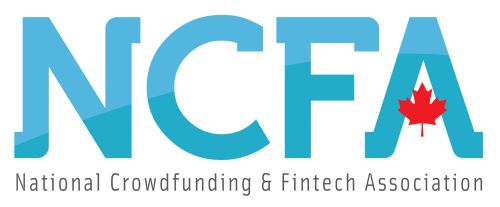 The National Crowdfunding & Fintech Association (NCFA Canada) is a financial innovation ecosystem that provides education, market intelligence, industry stewardship, networking and funding opportunities and services to thousands of community members and works closely with industry, government, partners and affiliates to create a vibrant and innovative fintech and funding industry in Canada. Decentralized and distributed, NCFA is engaged with global stakeholders and helps incubate projects and investment in fintech, alternative finance, crowdfunding, peer-to-peer finance, payments, digital assets and tokens, blockchain, cryptocurrency, regtech, and insurtech sectors. Join Canada's Fintech & Funding Community today FREE! Or become a contributing member and get perks. For more information, please visit: www.ncfacanada.org
The National Crowdfunding & Fintech Association (NCFA Canada) is a financial innovation ecosystem that provides education, market intelligence, industry stewardship, networking and funding opportunities and services to thousands of community members and works closely with industry, government, partners and affiliates to create a vibrant and innovative fintech and funding industry in Canada. Decentralized and distributed, NCFA is engaged with global stakeholders and helps incubate projects and investment in fintech, alternative finance, crowdfunding, peer-to-peer finance, payments, digital assets and tokens, blockchain, cryptocurrency, regtech, and insurtech sectors. Join Canada's Fintech & Funding Community today FREE! Or become a contributing member and get perks. For more information, please visit: www.ncfacanada.org
- SEO Powered Content & PR Distribution. Get Amplified Today.
- PlatoAiStream. Web3 Data Intelligence. Knowledge Amplified. Access Here.
- Minting the Future w Adryenn Ashley. Access Here.
- Buy and Sell Shares in PRE-IPO Companies with PREIPO®. Access Here.
- Source: https://ncfacanada.org/fintech-fridays-ep59-master-entrepreneurship-with-yedi/
- :has
- :is
- :not
- :where
- $UP
- 10
- 11
- 12
- 13
- 14
- 15%
- 20
- 2018
- 22
- 30
- 50
- 8
- a
- ability
- Able
- About
- above
- absolutely
- Academia
- academic
- accelerator
- access
- accessible
- actively
- actually
- affiliates
- afraid
- After
- again
- age
- AI
- All
- allows
- alone
- along
- already
- also
- alternative
- alternative finance
- always
- am
- amazing
- an
- and
- Angel
- Angel Investor
- Another
- answer
- any
- anyone
- anything
- apart
- applicable
- Application
- applications
- Apply
- Applying
- appreciate
- approach
- ARE
- around
- AS
- aspect
- aspects
- Assets
- Association
- At
- Attainable
- attend
- audience
- available
- average
- back
- barrier
- barriers
- base
- based
- Basics
- basis
- BE
- because
- become
- becoming
- been
- before
- believe
- BEST
- Better
- between
- Biggest
- Bit
- blockchain
- book
- both
- Bounce
- Brain
- bring
- Bringing
- broad
- brought
- budget
- built
- business
- Business Grow
- business owners
- business plan
- businesses
- but
- by
- CA
- cache
- call
- Campaigns
- CAN
- Canada
- Canadian
- Canadians
- care
- Career
- carry
- case
- Case Studies
- certificate
- Chance
- Channel
- charge
- Charity
- check
- circumstances
- Citizens
- class
- classes
- closely
- Coffee
- Cohort
- College
- come
- comes
- commit
- community
- Companies
- Connections
- consultation
- consultations
- contact
- continue
- Cool
- Cost
- could
- country
- Couple
- course
- covering
- Covid
- create
- created
- Creating
- Credibility
- Crowdfunding
- crucial
- cryptocurrency
- curated
- Current
- Curriculum
- Customers
- Date
- dated
- day
- Days
- Debt
- decentralized
- decide
- decided
- decrease
- dedicate
- definitely
- Degree
- detail
- developed
- Development
- developments
- DID
- digital
- Digital Assets
- digital marketing
- Director
- distributed
- do
- does
- doing
- don
- done
- down
- drive
- dropped
- during
- each
- eager
- Early
- early stage
- economy
- ecosystem
- educate
- Education
- either
- email marketing
- encourage
- endeavors
- engaged
- enrolled
- Entire
- Entrepreneur
- entrepreneurial
- entrepreneurs
- entrepreneurship
- Environment
- episode
- established
- etc
- Ether (ETH)
- Even
- everyone
- everything
- evolving
- exactly
- example
- examples
- excited
- Expand
- expensive
- experience
- experiencing
- expert
- external
- Eyes
- FAIL
- family
- family members
- FAST
- feedback
- feel
- field
- Figure
- figured
- final
- finance
- Finances
- financial
- financial innovation
- financials
- financing
- Find
- finish
- fintech
- First
- Flexibility
- For
- Forward
- Foundations
- four
- Free
- Friday
- Fridays
- friends
- from
- front
- funding
- funding opportunities
- funds
- future
- gap
- General
- generally
- get
- getting
- Give
- given
- gives
- Global
- globe
- Go
- Goes
- going
- Golden
- good
- Government
- graduate
- great
- Group
- Grow
- Growth
- guidance
- had
- hammer
- hand
- Hands
- happens
- happy
- Have
- having
- head
- help
- helping
- helps
- her
- here
- High
- Highlight
- Hit
- HOURS
- How
- How To
- However
- HTTPS
- Hybrid
- i
- idea
- ideas
- if
- immersive
- important
- improve
- in
- in-depth
- incredible
- incubator
- industry
- information
- initial
- Innovation
- innovations
- innovative
- Institute
- Insurtech
- Intelligence
- interact
- interesting
- internally
- International
- Interview
- into
- introduce
- investment
- investor
- Investors
- involved
- issues
- IT
- itself
- Jan
- Job
- Jobs
- join
- joined
- Joins
- journey
- jpg
- jump
- just
- Keep
- Kind
- Know
- Knowing
- knowledge
- landscape
- latest
- launch
- leading
- LEARN
- learned
- learning
- lectures
- left
- less
- letting
- Level
- Life
- like
- likely
- List
- Listening
- little
- ll
- located
- locations
- Look
- look like
- looking
- lost
- Lot
- made
- Main
- maintain
- major
- make
- Making
- management
- many
- many people
- Market
- Marketing
- Marketing Campaigns
- master
- Match
- Matter
- max-width
- May..
- MBA
- mean
- meaning
- means
- Media
- medium
- Meet
- member
- Members
- mentioned
- might
- mind
- minute
- Mission
- mixed
- mom
- more
- most
- Movers
- Movers and Shakers
- much
- name
- National
- Need
- network
- networking
- Networking opportunities
- New
- next
- no
- non-profit
- now
- obtaining
- of
- off
- offer
- offered
- Offerings
- Office
- Okay
- on
- once
- ONE
- ones
- online
- only
- open
- Operations
- opportunities
- Opportunity
- or
- originally
- Other
- our
- out
- over
- overview
- own
- owners
- Paper
- part
- participants
- partner
- partners
- parts
- passes
- passion
- past
- path
- Pay
- payments
- peer to peer
- People
- perfect
- perks
- permanent
- person
- personal
- Personally
- physical
- pick
- Place
- plan
- plato
- Plato Data Intelligence
- PlatoData
- please
- plus
- podcast
- Podcasts
- Point
- points
- possible
- Practical
- present
- private
- Problem
- Product
- Products
- professionals
- Professor
- Program
- Programs
- projects
- Propel
- provide
- provides
- purpose
- pursue
- put
- qualified
- question
- Questions
- quickly
- RE
- reach
- real
- real-time
- really
- receive
- recommend
- region
- Regtech
- relevant
- remember
- report
- requires
- research
- residents
- Resonate
- resource
- REST
- Results
- review
- Rise
- road
- round
- Run
- running
- s
- safe
- Said
- sales
- Salesperson
- same
- say
- Scale
- School
- Second
- sector
- Sectors
- see
- seeing
- Seek
- seem
- seems
- sees
- sense
- separate
- Series
- Services
- sessions
- set
- Sets
- setting
- sharing
- she
- should
- side
- since
- small
- small business
- So
- Social
- social media
- Solving
- some
- Someone
- something
- Space
- Spark
- speak
- spend
- Spot
- Stage
- stages
- stakeholders
- stand
- start
- started
- Starting
- Starting a Business
- Step
- Stewardship
- Still
- structure
- structured
- Struggle
- studies
- subject
- submit
- subscribers
- succeed
- success
- successful
- such
- Super
- support
- surprised
- surrounded
- sweet
- Take
- taking
- Talk
- talking
- team
- Technology
- tell
- ten
- terms
- test
- than
- thanks
- that
- The
- The Basics
- The Future
- the information
- The Landscape
- the world
- their
- Them
- theme
- themselves
- then
- There.
- These
- they
- thing
- things
- think
- Thinking
- Thinks
- this
- this week
- those
- though?
- thought
- thousands
- three
- Through
- throughout
- time
- times
- to
- today
- Tokens
- too
- took
- tools
- top
- topic
- Topics
- touched
- Transcript
- transition
- two
- typically
- unable
- understand
- understanding
- understood
- university
- until
- Updates
- upgrade
- us
- use
- using
- usually
- VALIDATE
- Valuable
- value
- VC
- Ve
- very
- vibrant
- virtually
- vision
- Visit
- vital
- wait
- waived
- want
- wanted
- was
- Way..
- ways
- we
- Website
- week
- weekly
- welcome
- welcoming
- WELL
- were
- What
- What is
- when
- which
- WHO
- whole
- why
- will
- with
- without
- Won
- Work
- work out
- worked
- working
- works
- world
- would
- write
- year
- years
- york
- you
- Younger
- Your
- yourself
- zephyrnet

